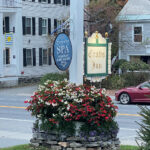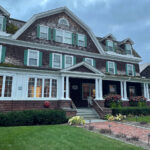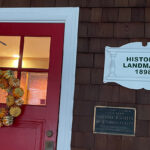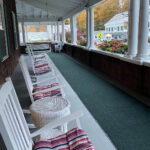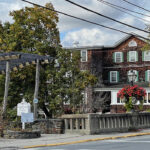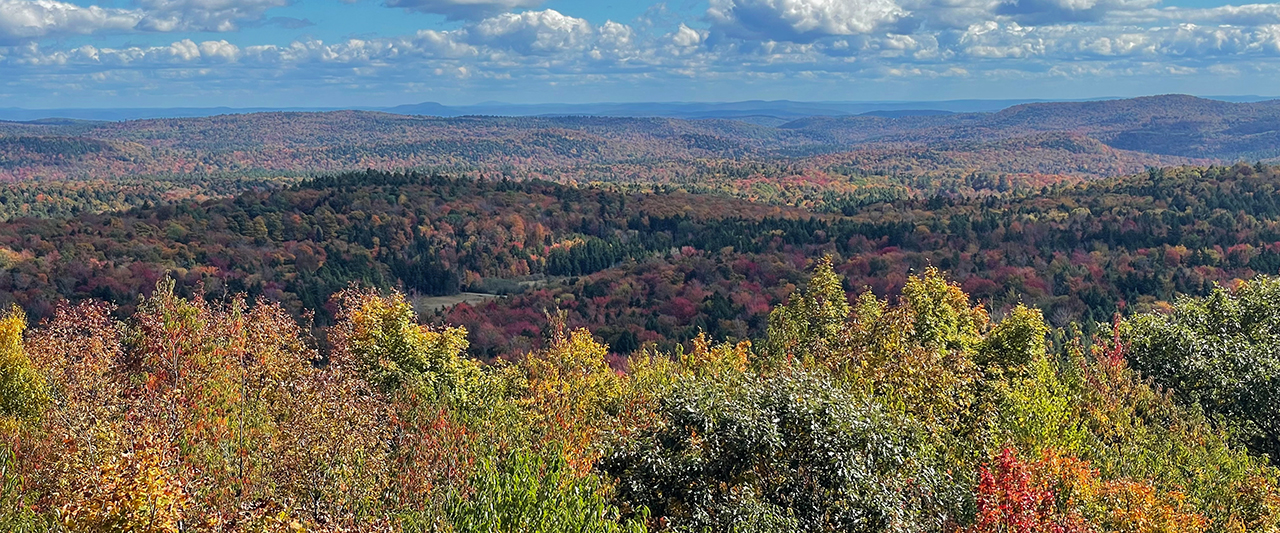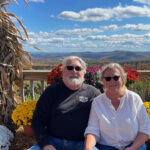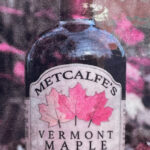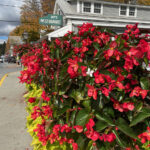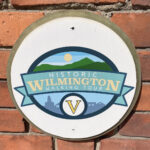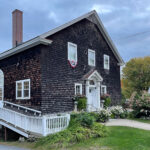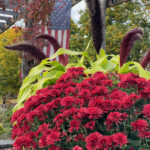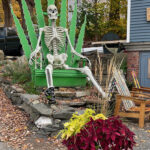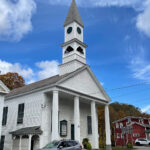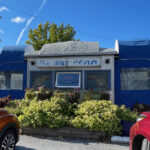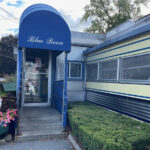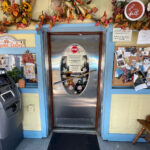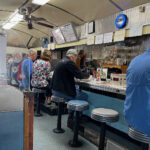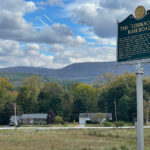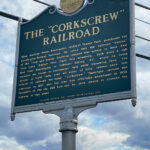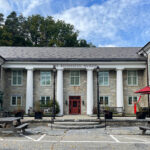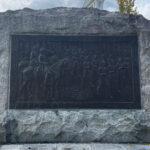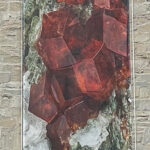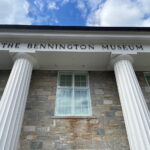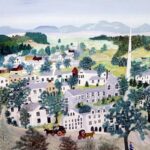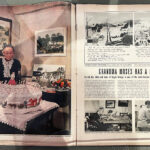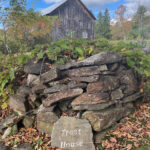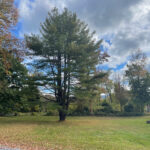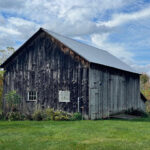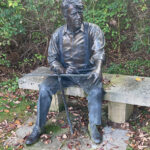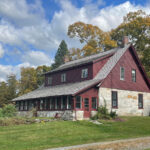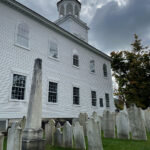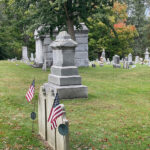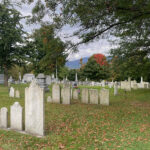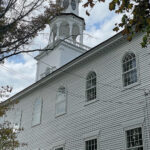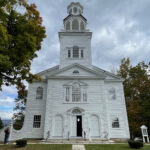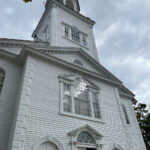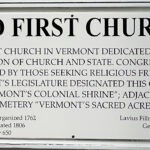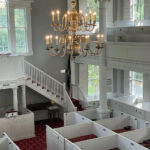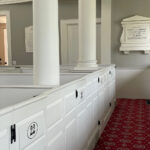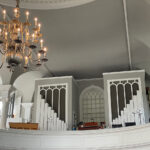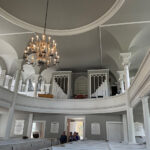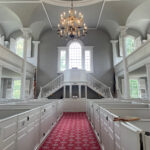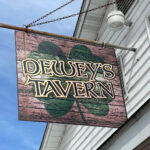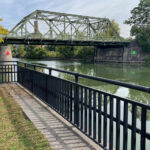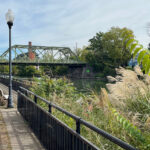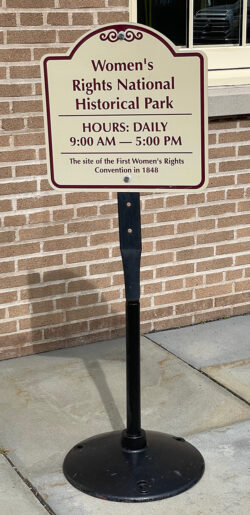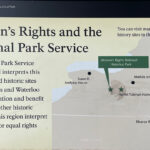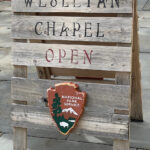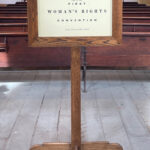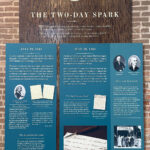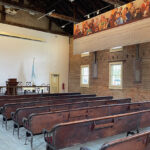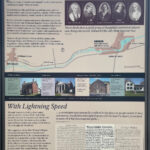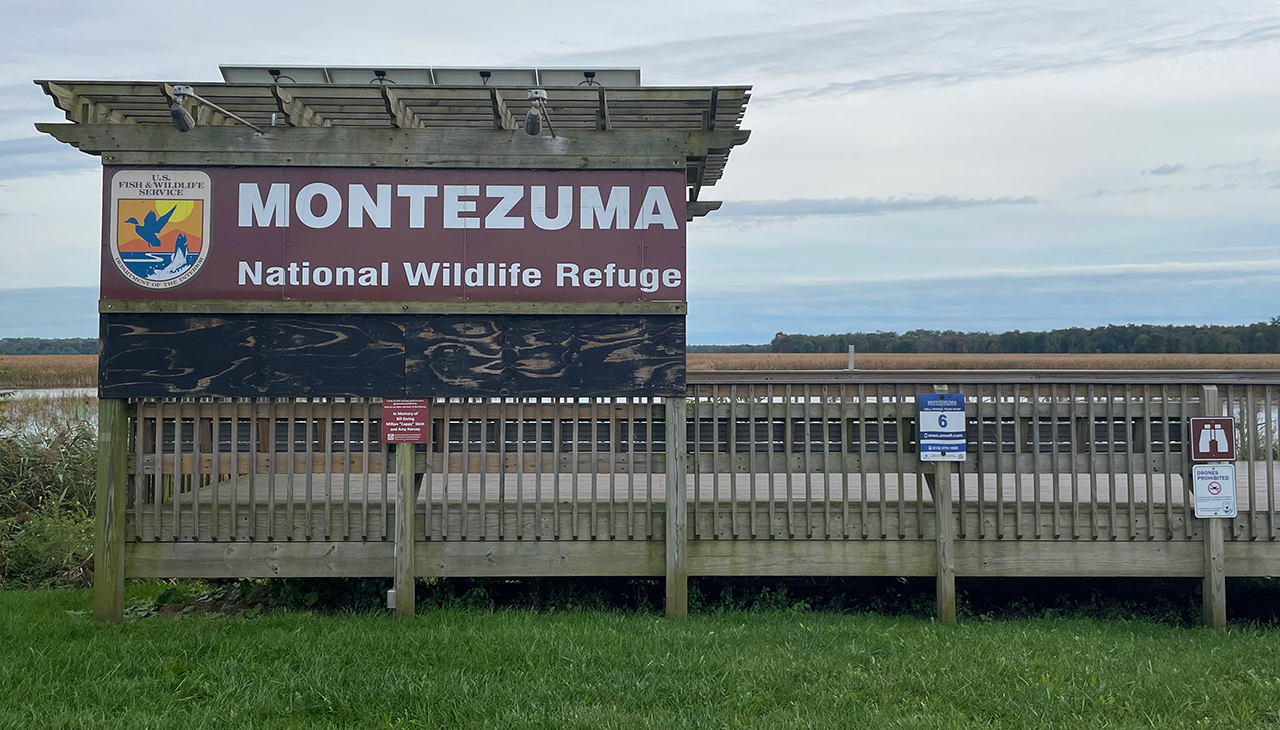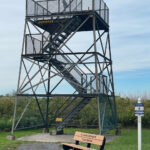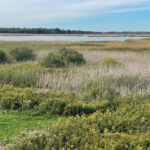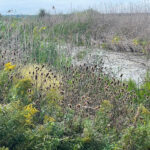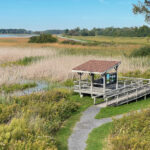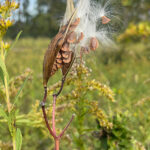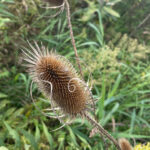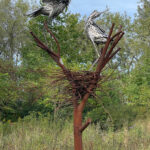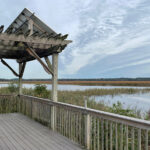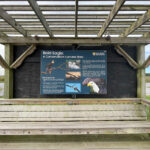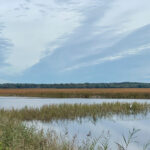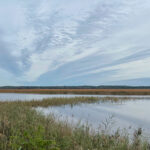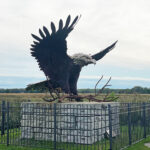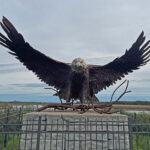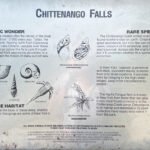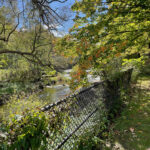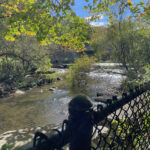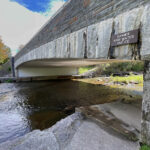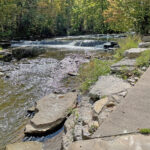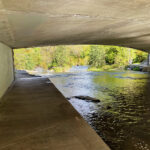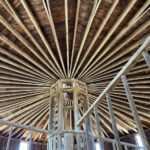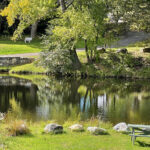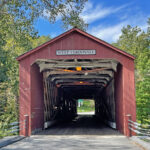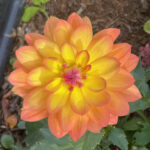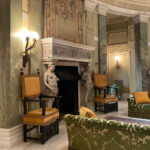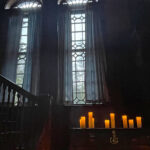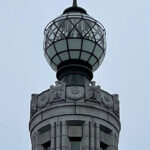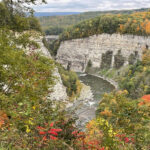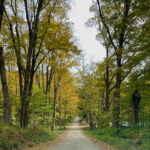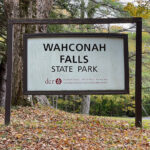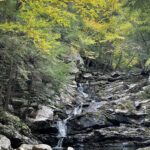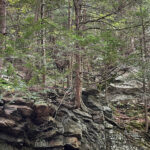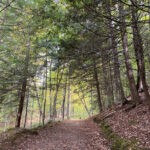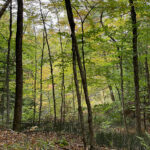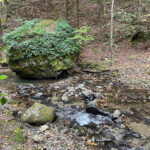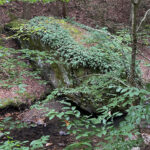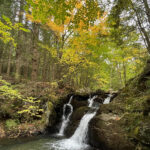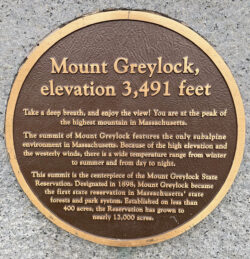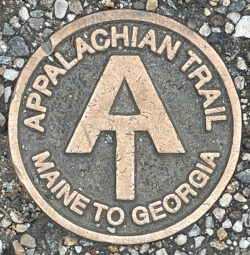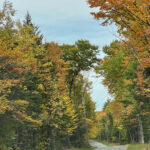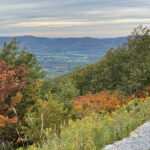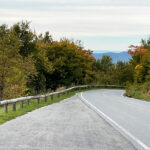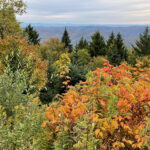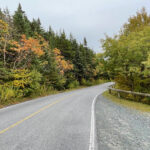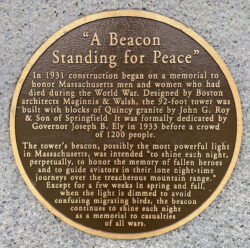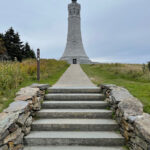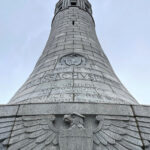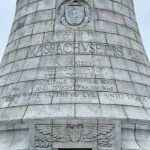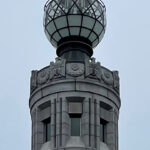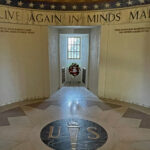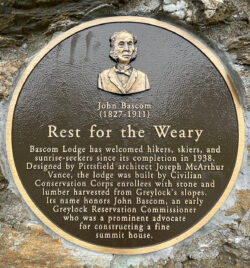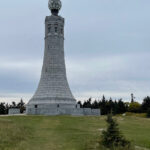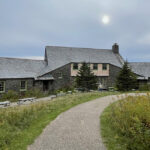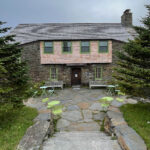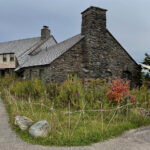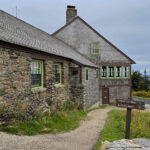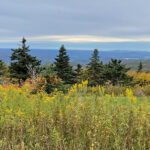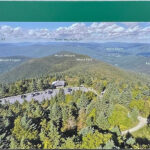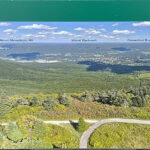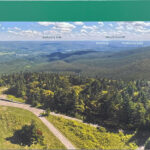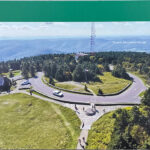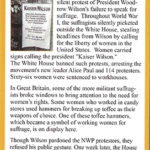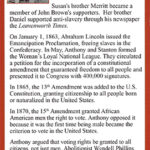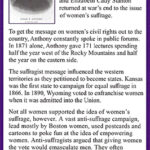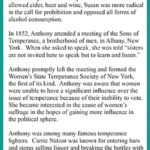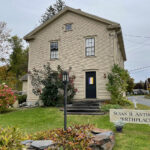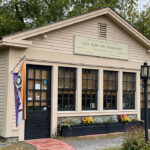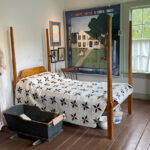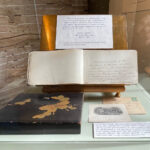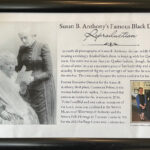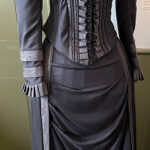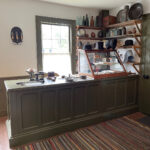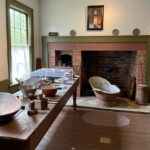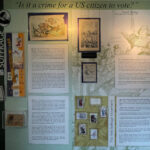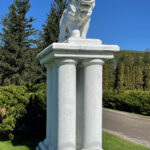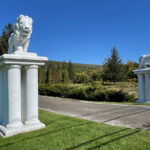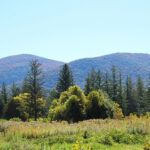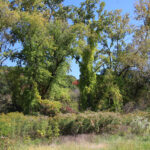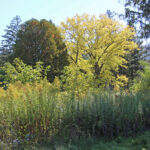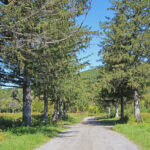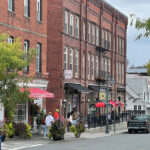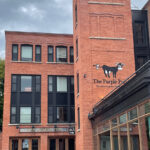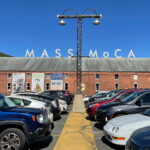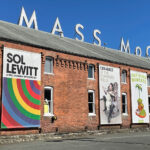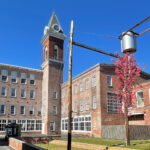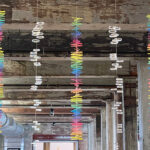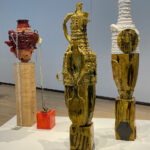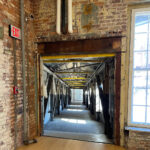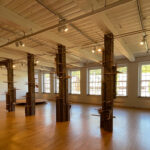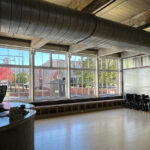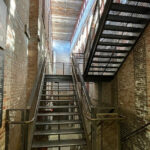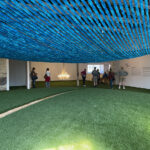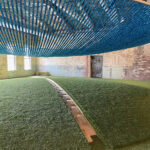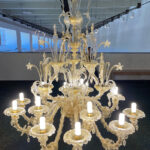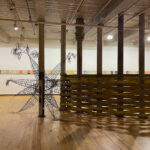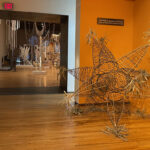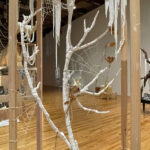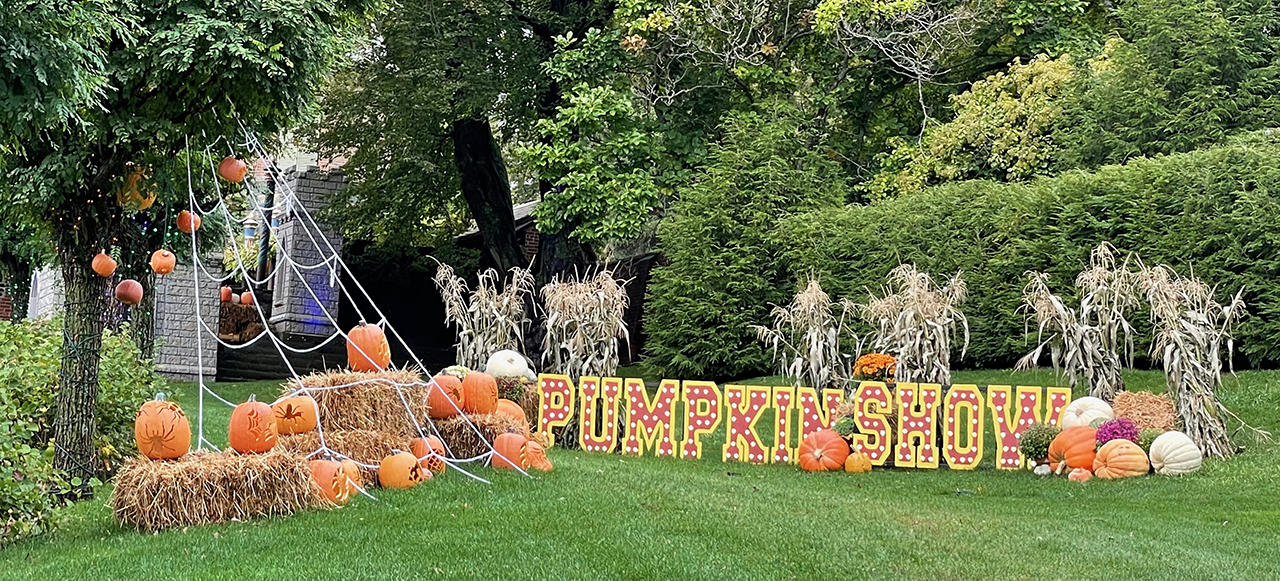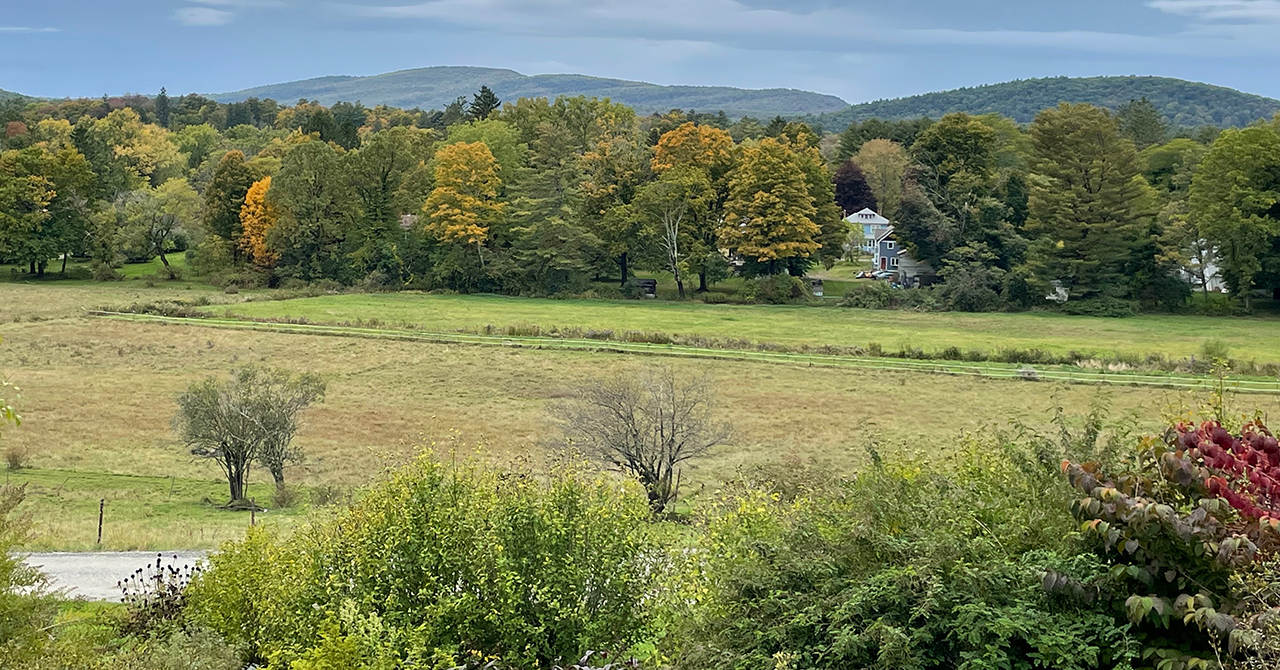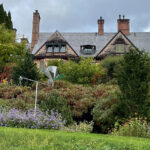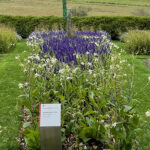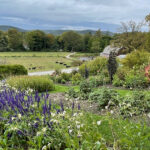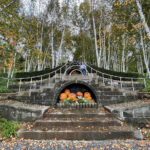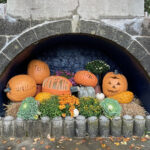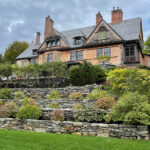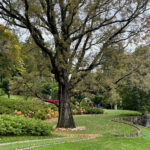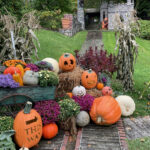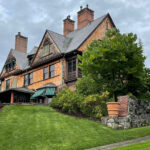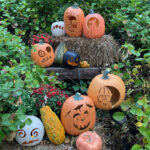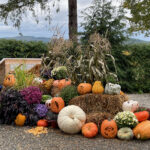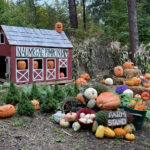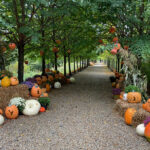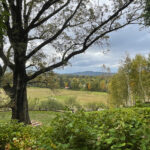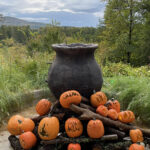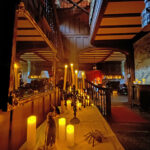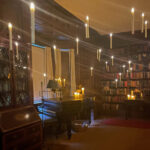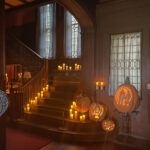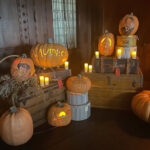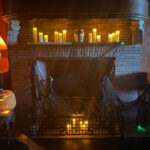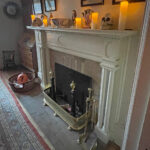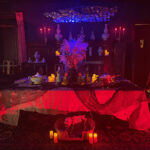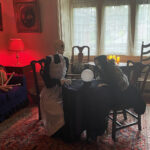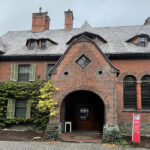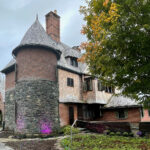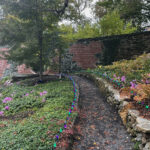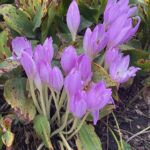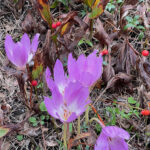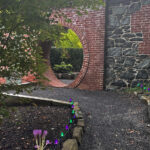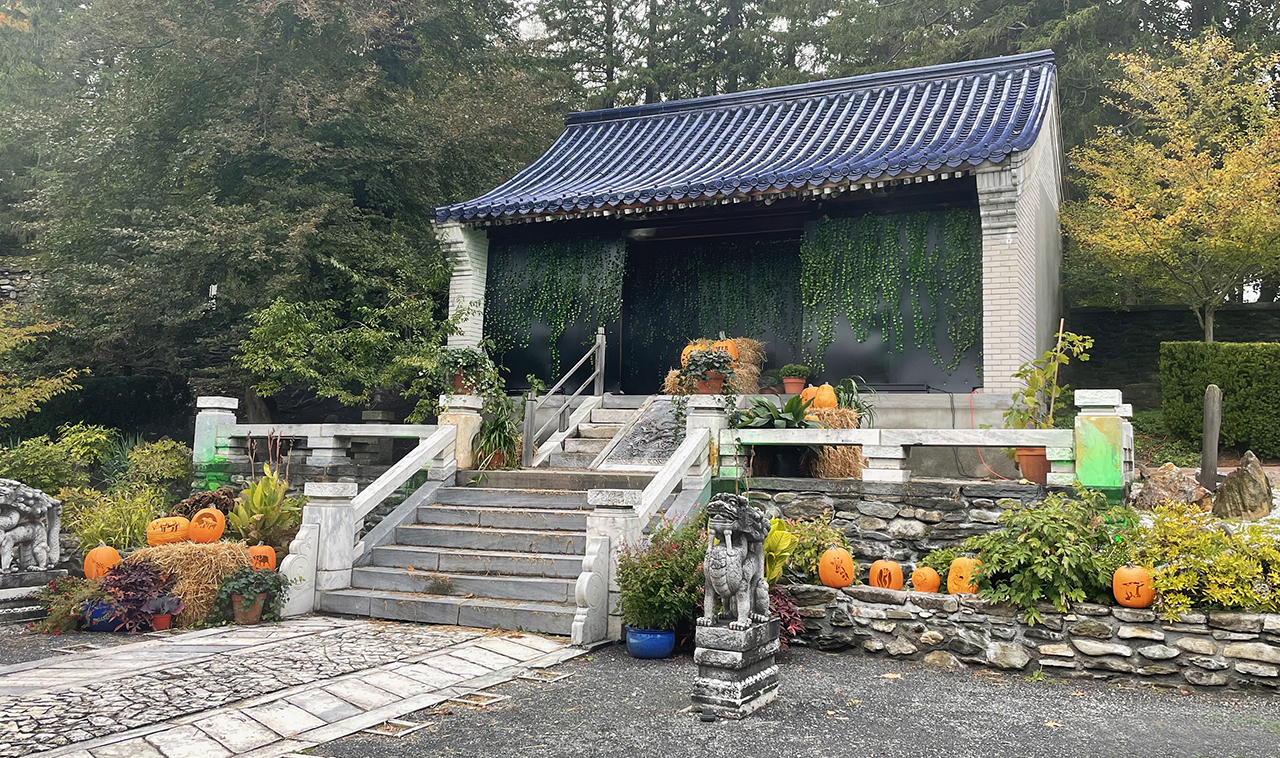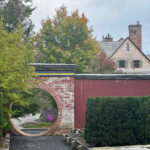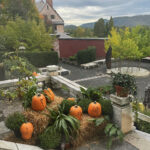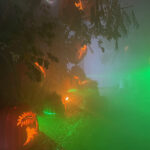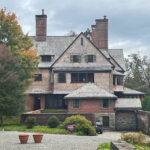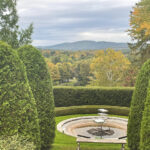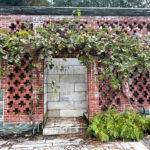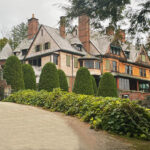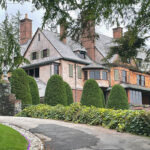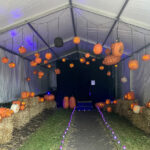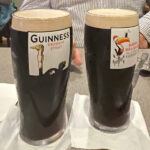Our first time in Vermont was just a day trip, which clearly was not enough! We’ve returned twice since – to the same resort in Wilmington. Located at the southern end of the state, we were in between two great towns with spectacular scenery around every curve.
Click on the first photo in each group and scroll to see the square photos at full size.
To start at the beginning of this series, visit A New England Autumn.
Welcome Back!
On both of our visits to Vermont, we stayed at Crafts Inn by using the RCI option of our timeshare. RCI is a clearing house of sorts for owners wanting to exchange a location that their timeshare provides, for one that it doesn’t. Although we will be staying at one of ours when we move to New Hampshire next week, we have no options in Vermont.
On our last trip here in 2021, we were pleasantly surprised when we arrived at our “historic” accommodations. Sometimes when that description precedes the name we get a little anxious about just how rustic it may be. Once we got used to its antiquated elevator system, we found our room to be very nice, clean, and very spacious.
Although not as modern as some resorts, the location was perfect for day trips. When we just wanted to stay home, the covered porch provided plenty of people-watching on a row of rocking chairs. And with Wilmington just outside our door, there was no driving required.
Centrally Located
The Molly Stark Scenic Byway (Route 9) runs right by Crafts Inn and is the southernmost scenic drive in Vermont. It spans the entire width of Vermont at its narrowest point, which is only about 48 miles. This is the easiest (and most beautiful) option when traveling from Wilmington to Bennington (west) or Brattleboro (east), cutting through the spectacular Green Mountains along the way. We made several trips in both directions on our exploration days.
Just Who is Molly Stark?
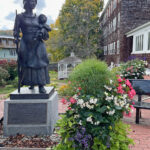 A statue of Molly Stark with one of her eleven children is stationed on property at Crafts Inn. Molly was the wife of Brigadier General John Stark, who was victorious over the forces of Great Britain in the Battle of Bennington in 1777.
A statue of Molly Stark with one of her eleven children is stationed on property at Crafts Inn. Molly was the wife of Brigadier General John Stark, who was victorious over the forces of Great Britain in the Battle of Bennington in 1777.
Her love, courage, and self-reliance are common virtues among women when husbands are called to duty for their country. General Stark’s victory march from Bennington to his home in New Hampshire followed today’s Route 9. In 1936 it was recognized as “The Molly Stark Trail”, but it became official by the State of Vermont in 1967 when they changed it to a Scenic Byway.
The Hundred Mile View
There’s plenty more information about Molly Stark just nine miles away at Hogback Mountain scenic overlook in Marlboro, VT. Along with the amazing view, we made several stops for ice cream and other Vermont specialties. We also enjoyed our first visit to Metcaffe Distillery, which has a beautiful deck to enjoy a fabulous Maple Old Fashioned and other tasty concoctions.
Visit the link from our last trip (The Hundred Mile View) for a panoramic video from this very spot, and info on the dawn of the automobile age which brought about one of our favorite pastimes – road tripping!
Lazy Morning and a Little Shopping
One morning we walked across the street to Dot’s Restaurant, where a Bloody Mary for brunch (and spectacular eggs benedict) got us set up for a little local exploring (shopping). Visit Historic Wilmington for more history of Crafts Inn and a look at more of the buildings, as well as some information about their original owners.
A Great Day in Bennington
What great day trip doesn’t start with a great breakfast? We stopped by the Blue Benn Diner for a little sustenance.
Originally known as The Silk City Diner, the Paterson Vehicle Co. in New Jersey manufactured this little treasure in 1948. That year it was shipped to and assembled on its present site in Bennington. It changed hands in 1973 to become the Blue Benn – a family-owned diner for 47 years.
Upon the death of one owner and then Covid, the Blue Benn’s future was in jeopardy with outcries on social media regarding its possible demise. A former college-student regular at the diner who had since moved to Maine rushed in to save the day. He moved back to Bennington to continue its long and beloved tradition.
“The Blue Benn Diner has been delighting foodies for generations. The ambiance of a classic 1957 “silk city” diner car coupled with an extraordinary menu that goes well beyond diner classics makes this restaurant a must to experience. Rated in the top ten of diners nationwide, discover this gem as part of your Vermont experience.” ~ READ MORE
Some Museum Time
After that great breakfast, we were ready to dive a little deeper into Bennington, Vermont. To date we had only checked out some antique shops along the main drag, with several visits to Madison Brewing Company. Today we’ll finish up with a cold beer and appetizers a lot closer to home.
Bennington Museum is quite impressive, with great views from its expansive courtyard where public events are held. The museum shares the past by “telling the stories of this region through Art, History, and the New England Landscape.”
Vermont Rocks
This native stone structure first served as St. Francis De Sales Catholic Church from 1855 to 1892. Bennington Museum opened to the public in 1928 after major renovations to provide a more functional and beautiful space for the museum’s growing collections. The current exhibit was called “Vermont Rocks” and explored “the historical and cultural significance of Vermont’s “mineral wealth”.
Grandma Moses
A permanent exhibit features paintings by Anna Mary Robertson Moses. I had heard the name Grandma Moses, but didn’t recall her being an artist, so we were pleasantly surprised! Her detail and colorful depictions of life back in her day were fascinating.
“Bennington Museum holds the largest public collection in the world of paintings by Grandma Moses, the great 20th-century folk artist who painted scenes of rural life embodying a sense of an idyllic bygone America. Anna Mary Robertson “Grandma” Moses (1860-1961) started painting in her seventies and within years was one of America’s most famous artists.
Moses spent most of her life in Eagle Bridge, New York, fifteen miles northwest of Bennington, depicting the rolling landscape of Washington County. She occasionally painted scenes of Vermont including Bennington (1953) (first photo above) which shows the gray stone Bennington Museum building at center.” ~ READ MORE
Robert Frost Stone House Museum, Shaftsbury
Although we were able to wander freely on property, we missed the shortened museum hours during this time of year. I would have loved to see the room where – on a day in June, 1922 – Frost wrote “Stopping by Woods on a Snowy Evening”.
For nine years of the 1920s, Frost lived in this 18th-century stone and clapboard house in Shaftsbury, VT. It was here (and a nearby farm) that he fell in love with Vermont, spending time writing poems, tending to the apple orchard, raising chickens, and walking in the woods. Forty-years later Frost would be named the first poet laureate of Vermont.
In 2002, the house was opened to the public as the Robert Frost Stone House Museum and was given to Bennington College in 2017. The college holds educational courses, poetry readings, on-site programming, and student art shows.
Robert Frost’s Gravesite
Knowing how Robert Frost loved this area of the country, it makes sense that he would be buried here. Our next stop was Old Bennington Cemetery (a.k.a. Old First Church Cemetery) – one of the oldest cemeteries in Vermont. Adjacent to the Old First Church (we’ll visit that next), the first headstone was placed the same year the church was established.
Although Robert Frost was not a member of the church, he read his poem The Black Cottage at its rededication in 1937, and bought two plots for family burials.
Signs led us to Robert’s grave as well as other notable folks buried here. Seventy-five Revolutionary War Soldiers who fought and died at the Battle of Bennington in August 1777 are also buried here and their graves are marked with American flags.
Old First Church
Old First Church was our next stop after visiting its cemetery. After building four churches in Connecticut, Lavius Fillmore (then 36 years old) was invited to Bennington to build this church. It was completed in December of 1805, and dedicated in January of 1806.
“The [first] Old First Church was gathered in 1762 by Bennington’s earliest settlers and is recognized as, the first Protestant church in what is now Vermont. Much of the early history of Vermont took place in and around the first meetinghouse, (built in 1763, no longer standing) and the present church, dedicated in 1806. As a result, the Vermont Legislature, in 1935, designated the church as “Vermont’s Colonial Shrine” and the adjacent cemetery as “Vermont’s Sacred Acre”.
After an extensive restoration effort last century the building stands much as it did during its dedication when first dedicated in 1806. The church is considered one of the most beautiful examples of early colonial church architecture.” ~ READ MORE
What a Day!
Back at Crafts Inn, it was a short walk to the Maple Leaf Tavern for apps and Fiddleheads. Brewed in Shelburne, VT, Fiddlehead has become one of our favorite beers. I love vacations!
Next up: xx
Happy trails,
Barb

